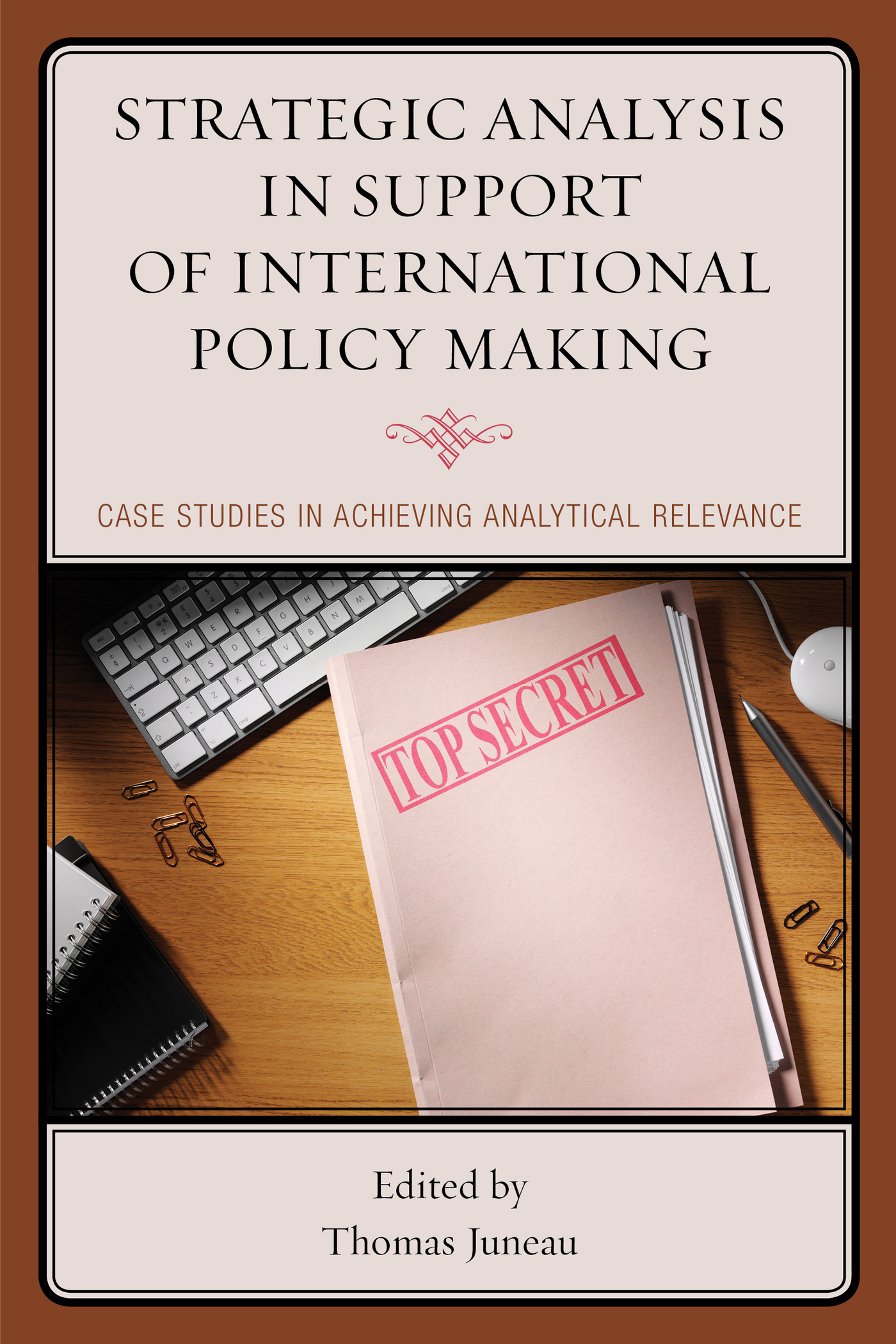Strategic Analysis in Support of
International Policy Making
Strategic Analysis in Support of
International Policy Making
Case Studies in Achieving
Analytical Relevance
Edited by Thomas Juneau
ROWMAN & LITTLEFIELD
Lanham Boulder New York London
Published by Rowman & Littlefield
A wholly owned subsidiary of The Rowman & Littlefield Publishing Group, Inc.
4501 Forbes Boulevard, Suite 200, Lanham, Maryland 20706
www.rowman.com
Unit A, Whitacre Mews, 26-34 Stannary Street, London SE11 4AB
Copyright 2017 by Rowman & Littlefield Publishers
All rights reserved. No part of this book may be reproduced in any form or by any electronic or mechanical means, including information storage and retrieval systems, without written permission from the publisher, except by a reviewer who may quote passages in a review.
British Library Cataloguing in Publication Information Available
Library of Congress Cataloging-in-Publication Data Available
ISBN: 978-1-4422-5761-0 (cloth : alk. paper)
ISBN: 978-1-4422-5762-7 (pbk. : alk. paper)
ISBN: 978-1-4422-5763-4 (electronic)
 TM The paper used in this publication meets the minimum requirements of American National Standard for Information SciencesPermanence of Paper for Printed Library Materials, ANSI/NISO Z39.48-1992.
TM The paper used in this publication meets the minimum requirements of American National Standard for Information SciencesPermanence of Paper for Printed Library Materials, ANSI/NISO Z39.48-1992.
Printed in the United States of America
Introduction
Thomas Juneau
Policy making on international issues occurs in a context of uncertainty, with senior officials usually operating under time, resource, and political constraints. Given the dynamic and complex nature of the international environment, decision makers are eager for real-time analysis that can help them make informed decisions and understand the short- and long-term implications of their choices. This is much easier said than done, however. Analysts and managers in organizations tasked with providing analytical support to senior clients face a wide range of challenges and obstacles, ranging from defining their precise niche (the specific value-added that they bring to the table); identifying their customers (those who are likely to read and use their products) and gaining a fine-grained understanding of their analytical needs; gaining the trust of these customers; and hiring, training, and retaining staff with the proper skills.
This collective book aims to improve our understanding of what it means to create high-quality analytical products by focusing on the oft-mentioned but poorly understood concept of relevance for policy makers. The book broadens the debate: despite variations in context, strategic analysts in different sectorsin intelligence, but also in nonintelligence government organizations, private consultancies, think tanks, and academiaface similar problems in identifying the needs of their clients and setting up organizations with the mandates, structures, and personnel necessary to address those needs. The objective of the book is therefore to identify these common challenges, compare solutions, and share lessons learned. To do so, we combine broader thematic reflections on strategic analysis with innovative case studies of how organizations have worked to successfully produce relevant analysis.
Why This Book
The literature in the field of intelligence studies is steadily growing. Until about two decades ago, the field was relatively immature and mostly dominated by biographies and autobiographies of retired officials, along with occasional historical monographs.
A particularly important and useful area of growth has been the study of intelligence analysis. Practitioners, both serving and retired, and scholars have published an emergent body of studies looking at analysis from a variety of angles, including organizational machinery, methods and tools, support to military operations, and perhaps most prominently, its relationship with policy.
A key theme throughout this literature is that intelligence analysis is, or should be, a means to an end, and not an end in itself. This end is, or should be, to provide support for policy and decision makers. Different authors provide varying definitions of the ideal nature of this support. Broadly, the basic idea is that intelligence must not only provide interesting and rigorous analysis of important developments, but rather that it must provide its clients with a specific value added, what Jennifer Sims labels as decision advantages (2005). To do so, intelligence analysis must educate and inform its clients to allow them to gain an edge over adversaries or, simply put, to better do their job. Jack Davis, for example, a former CIA analyst, argues that the mission of intelligence analysts is to apply in-depth substantive expertise, all-source information, and tough-minded tradecraft to produce assessments that provide distinctive value-added to policy clients efforts to protect and advance national interests (2006, 1007). Roger George and James Bruce make the case in more crudebut appropriateterms: Analysts are of no use to their official customers by being merely the smartest and best-informed experts on a topic. They must address the policy needs of whoever now sits in the White House, executive departments, and congressional offices (2008, 304).
There is much debate as to how much success intelligence analysis achieves in providing what Davis, George, and Bruce posit is the ideal, with answers ranging from an overall mediocre performance to a satisfying one. Many official reports in the United States, in particular, have highlighted the unsatisfactory nature of the intelligence communitys analytic performance. The Brown Commission of 1996, for example, concluded that often what [policy makers] receive fails to meet their needs by being too late or too unfocused, or by adding too little to what they already know (Commission on the Roles and Capabilities of the United States Intelligence Community 1996, 83). Richard Russell, a former CIA analyst, is even more scathing in his critique of what he labels as the CIAs dismal performance and its sclerotic bureaucratic culture (2007). Thomas Fingar, a former deputy director for national intelligence and chairman of the National Intelligence Council, is, on the other hand, more generous: in his view, most of the 14,000 analytical products that he approved in his long career as a manager may not have been entirely correct, but they were useful to those his organizations supported (2011, 48).
At the very least, most observers agree that there is scope for intelligence analysis to do better. The notion of relevance is central to these debates on how to better position intelligence to support policy and decision making. Oddly, however, there is a gap in the literature: everyone agrees that relevance is one of the most important criteria for success and that clients demand it. Yet the concept remains poorly understood; there have been few efforts to conceptualize and operationalize it. What is it? How can it be defined? How do we know it when we see it? More specifically, how and why have specific analytical organizations successfully achieved it?
This book seeks to improve our understanding of this crucial concept of relevance by offering a series of case studies of analytical unitsboth governmental and nongovernmentalthat have worked to achieve it themselves, and of organizations that have supported analytical units in their quest for relevance, notably through education. This is important: there is a growing body of high-quality studies of the relationship between intelligence and policy, but the necessary next step must be to provide more in-depth and innovative case studies on
Next page
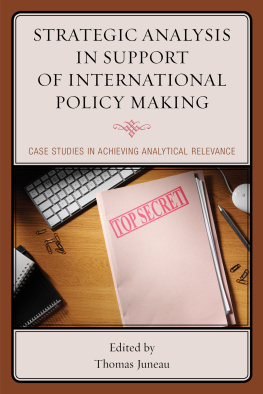
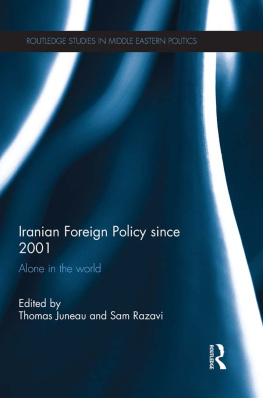
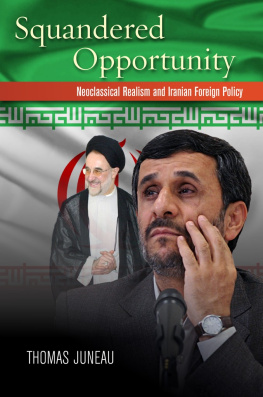

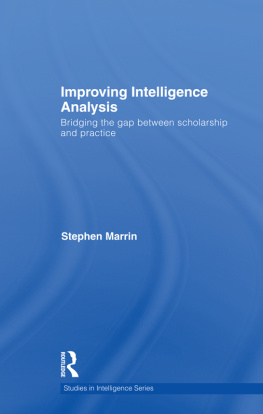

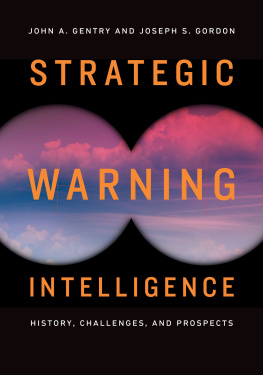
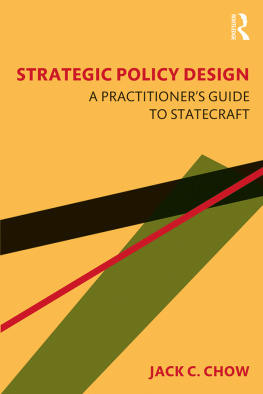
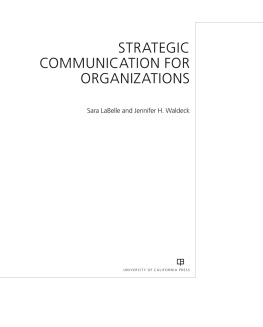

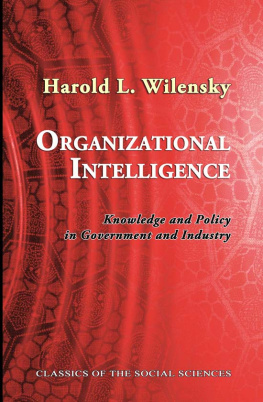
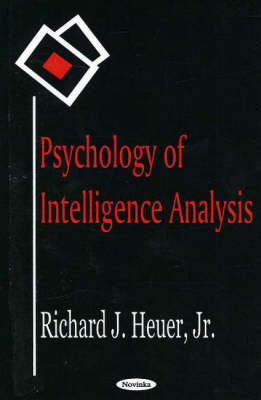
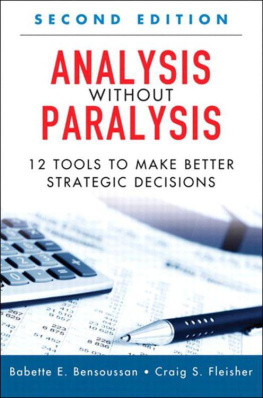
 TM The paper used in this publication meets the minimum requirements of American National Standard for Information SciencesPermanence of Paper for Printed Library Materials, ANSI/NISO Z39.48-1992.
TM The paper used in this publication meets the minimum requirements of American National Standard for Information SciencesPermanence of Paper for Printed Library Materials, ANSI/NISO Z39.48-1992.